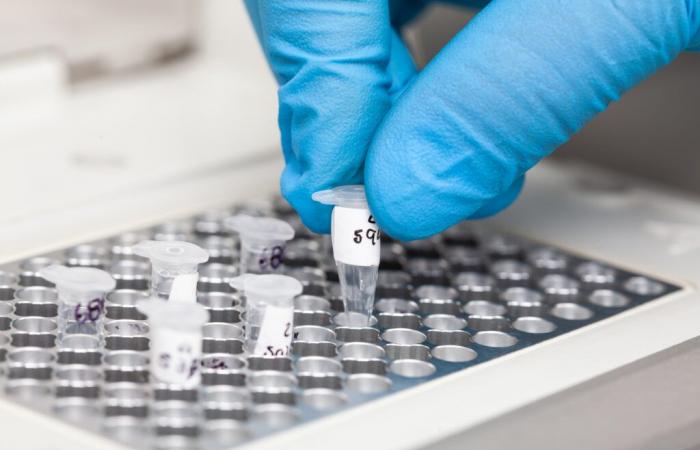Ulcerative colitis is a chronic immune-mediated disease with increasing incidence. Thus, the disease is one of the most common inflammatory bowel diseases (IBD), along with Crohn’s disease. There is a clinical need to identify biomarkers of severe forms of the disease in order to identify patients who require special monitoring and more aggressive treatment, in order toavoid repeated hospitalizations and surgeries.
A new biomarker for severe ulcerative colitis
The study therefore seeks to identify biomarkers of the severity of ulcerative colitis via a genomic association analysis (GWAS) carried out on 2 population groups, followed for 3 years:
- the Center for Molecular Prediction of Inflammatory Bowel Disease (PREDICT) NBS cohort which includes participants diagnosed with ulcerative colitis from 1981 to 2022;
- the North Denmark Biobank (NorDIBD) cohort which includes patients with inflammatory bowel disease from 1978 to 2020.
The genetic data of these 2 cohorts, representing a total of 4,491 participants, were compared with health, care, treatment and hospitalization data from the Danish national database.
Patients with severe ulcerative colitis were defined as having undergone at least one major ulcerative colitis-related procedure, at least 2 ulcerative colitis-related hospitalizations lasting more than 2 days, and/or having used at least 5,000 mg of systemic corticosteroids. within 3 years of diagnosis; patients not meeting these criteria were considered to have less severe ulcerative colitis and were included in the control group. The analysis reveals that:
- a locus on chromosome 6 in the HLA region is significantly associated with severe ulcerative colitis;
- the “HLA-DRB1*01:03” allele explains this association: carriers of this allele, versus non-carriers, thus have a risk more than multiplied by 3 (OR: 3.32) of developing ulcerative colitis considered severe ;
- a risk of surgery multiplied by more than 6;
- a risk of at least 2 hospitalizations, multiplied by 2;
- a more than 2-fold risk of receiving a prescription for at least 5,000 mg of systemic corticosteroids.
Thus, in patients with ulcerative colitis, the HLA-DRB1*01:03 allele – a low frequency allele – is associated with ulcerative colitis more severe overall requiring major surgery, including colectomy, hospitalization, and use of systemic corticosteroids.
Health






